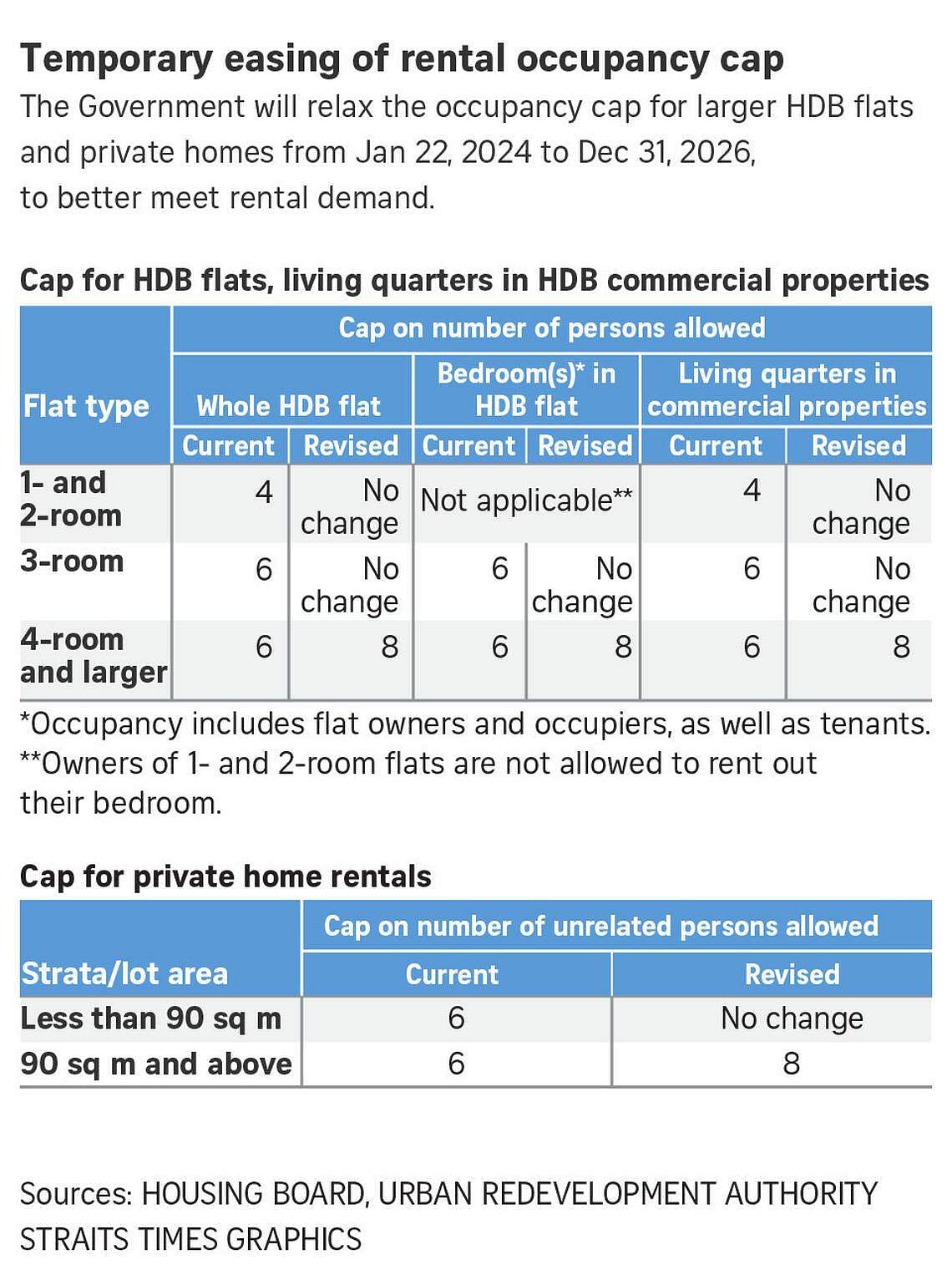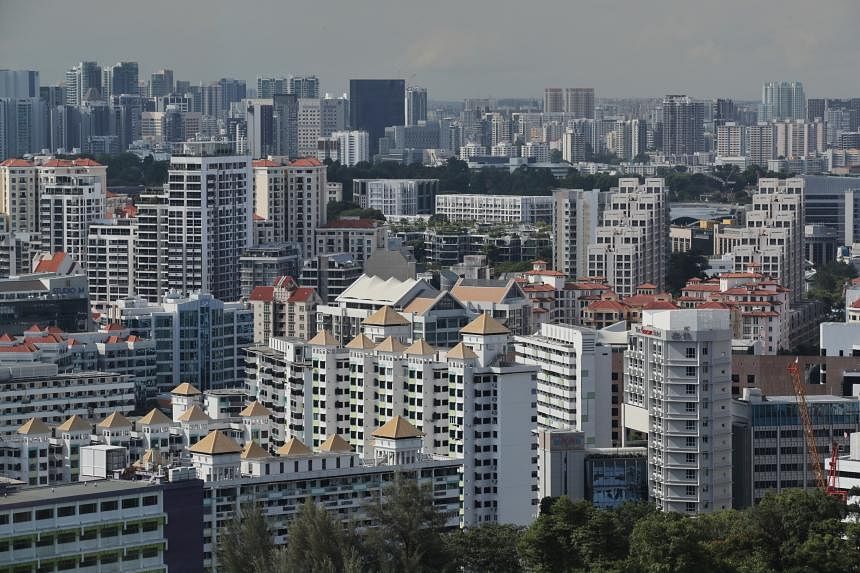SINGAPORE - The number of tenants allowed in larger Housing Board flats and private residential properties will be temporarily increased for about three years, to help cool the home leasing market and support households that intend to rent.
From Jan 22, 2024, to Dec 31, 2026, owners of four-room or larger flats and private homes of at least 90 sq m will be allowed to house up to eight unrelated people who are not from the same family unit, up from the current cap of six, said HDB and the Urban Redevelopment Authority (URA) in a joint statement on Dec 20.
“We will review the need to extend this temporary measure depending on the rental situation in end-2026,” said National Development Minister Desmond Lee in a Facebook post.
He noted that since the pandemic, there has been a sharp increase in residential rents due to strong demand amid construction delays caused by the Covid-19 pandemic.
Market rents have jumped about 20 per cent for HDB and private residential properties since Jan 1, 2023, according to the Ministry of Finance. Prior to that, private rents surged 29.7 per cent year on year in 2022 – the fastest annual growth since 2007. That same year, HDB rents grew the fastest in 15 years, by 28.6 per cent, according to OrangeTee & Tie.
As mortgage rates, taxes and inflation jumped, many landlords passed the cost to their tenants. Rental demand surged after the pandemic stabilised and global travel resumed, and as more sought interim housing due to delays in the completion of their new homes or larger properties for work-from-home, analysts said.
According to PropNex, private non-landed homes of at least 90 sq m accounted for about half of the 70,777 rental approvals lodged between January and November 2023. The number of 4-room and larger HDB flats leased in the same period is estimated at 23,142 units, or about 65 per cent of all flat leasing transactions.
To mitigate the situation, Mr Lee said that housing supply was ramped up, with close to 100,000 homes expected to be completed by 2025. “This will allow Singaporeans currently renting while awaiting the completion of their new homes to collect their keys and vacate their rental units, further freeing up supply.”
He noted that a healthy rental supply needs to be maintained, to support those looking to rent, such as households waiting to move into their new homes, those here to work or study, and younger Singaporeans who want to rent their own space.
Ms Christine Sun, OrangeTee & Tie’s senior vice-president of research and analytics, said the raising of rental occupancy caps could help reduce rental costs – especially for lower-income renters, blue-collar foreign workers and foreign students. They will have the option of sharing a unit with more people and saving on rental.
Ms Chia Siew Chuin, JLL’s head of residential research for Singapore, said landlords that earn more rental income after raising their tenant headcount, and in turn see the annual values of their properties go up, will likely be liable for higher property taxes.
Mr Lee said the temporary measure will apply only to larger properties, in order to maintain a conducive living environment for the larger community.
“We will monitor the situation closely and take action against any infringements or serious disamenities, including revoking the home owner’s rental approval,” he added.
The authorities said the significant housing supply coming onstream in the next few years will help meet rental demand.
In 2023 alone, almost 40,000 homes are expected to be completed across the public and private residential markets – the highest number of home completions in the last five years. Close to 100,000 public and private residential units are expected to be completed from 2023 to 2025.
HDB said it has doubled the supply of flats available under the Parenthood Provisional Housing Scheme, from 800 units in 2021 to about 2,000 units today, to support families that need interim housing while waiting for their new flats to be built. The number of such flats will increase to 4,000 units by 2025.
The authorities said they are relaxing the cap for occupants allowed in larger living quarters of HDB commercial properties – equivalent to or larger than a four-room flat – as well. Currently, HDB flat owners, as well as HDB commercial property owners and tenants, have to seek HDB’s approval before the tenancy starts.

Residential property owners who now house up to six unrelated persons will need to apply to HDB or URA to include additional occupants, up to a total of eight per property. Applications to rent out HDB flats or bedrooms may be submitted online via HDB’s e-services. An administrative fee is payable with each application, at $10 per bedroom or $20 per whole flat rented out.
HDB commercial property owners and tenants who wish to rent out their living quarters can apply via the GoBusiness Licensing Portal. The administrative fee is $100 per application. Owners who wish to rent out larger private homes of at least 90 sq m to up to eight unrelated persons – each will be subject to a minimum stay of three consecutive months – are required to register via URA’s e-services. The fee for each registration is $20.
Those with enquiries on the rental of HDB flats/living quarters can write in using HDB’s e-Feedback form, or call 1800-225-5432 (for HDB flats) or 1800-866-3073 (for living quarters). For enquiries on rental of private residential properties, they can call 6223-4811 or contact URA via URA’s e-Feedback form.


